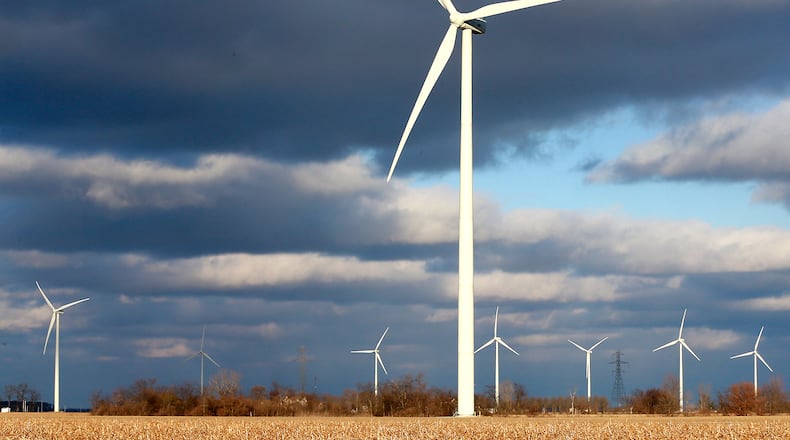That deal sets the stage for the wind farm to begin construction as early as next year, said Jason Dagger, project manager for the Buckeye Wind Farm. He declined to discuss details of the settlement, but said the agreement settles the last pending legal fight over the wind farm.
“Any settlement like this will help the project move forward,” Dagger said. “It ultimately may not look exactly like the initial project that was permitted.”
There will likely be fewer turbines built, but the locations of those turbines will not change, he said.
Attorneys for UNU confirmed a settlement has been reached, but declined to provide further details.
“The appeal at the Supreme Court has been dismissed at the joint request of UNU and Buckeye Wind,” said Jack Van Kley, an attorney representing UNU in the case. “The issues have been resolved.”
Timeline: Buckeye Wind Project
Champaign County residents first learned of the proposed Buckeye Wind Project in 2008. Along the way, approvals, hearings and appeals to the Ohio Supreme Court have been part of the project's story. Read about notable events by clicking through the timeline.
READ MORE:
Developer of controversial Champaign wind farm likely for sale
Court sides with Champaign County wind developers in permit fight
The Springfield News-Sun has provided award-winning coverage of a lenghtly legal dispute over a proposed wind farm spread across several townships in Champaign County. The paper has provided extensive coverage over everything from how the project would be taxed to the project’s potential impact on residents.
By the numbers:
50,000 — Homes per year the initial project could power
100 — Estimated number of turbines proposed in two phases of the project
About the Author
